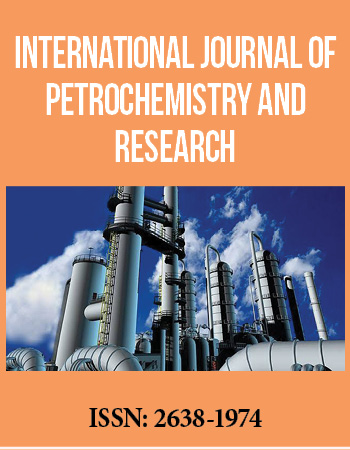International Conference on Oil, Gas and Petrochemistry
April 3-5, 2017 Dubai, UAE
Impacts of crude oil pollution on a hydromorphic soil of Rivers State, Nigeria: Implication to public health
University Of Port Harcourt, Port Harcourt
Environmental pollution through crude oil spill is a serious problem which degrades the functions of the fragile ecosystem. Much had been done on the effects of crude oil on soil properties but little is known on its effects on hydromorphic soil especially in Nigeria and its likely implications on public health. This study was carried out to determine the impact of oil spillage on soil chemical and biological properties and its implications on public health. Seven 10m x 10m quadrats of about 100m apart were randomly laid in each site whereby soil samples were collected at the topsoil of 0-15cm depth of the soil profile. A total of seven soil samples were collected in each plot with the use of soil auger into well-labelled polythene bags. The soil samples were air-dried and carefully sieved with 2mm diameter mesh after which standard laboratory techniques were used to determine chemical properties of the soil which included pH, Calcium (Ca), Potassium (K), Sodium (Na) and magnesium (Mg), Cation Exchange Capacity, total Nitrogen (N), available Phosphorus (P), Organic carbon and total hydrocarbon; and biological properties including hydrocarbon utilizing bacteria (HUB) and hydrocarbon utilizing fungal (HUF). Descriptive analysis was also used to explain the mean values of soil properties under each plot. Findings indicated that the mean pH was more acidic (5.21) in the polluted soil than the non-polluted soil (6.08) while the mean organic carbon (3.44%) and mean total hydrocarbon (8,485.7 mg g-1) were higher in the polluted soil. However, mean exchangeable bases (Ca, Mg, K) and total nitrogen were higher in the control soil than the polluted soil. It was indicated that the mean HUB (3.7x105cfu/g) and HUF (2.9x104cfu/g) were higher in the polluted soil. The increase in the total hydrocarbon in the polluted site is an indication that heavy metals would have been released to the soil and they can enter into food chain by consuming crops grown on such soil; suggesting that human health is in danger. The study recommended among others that phyto-remediation should be encouraged to reduce the quantity of crude oil in the soil; and more importantly there should be public awareness on environmental implications of oil exploration and exploitation.
Keywords: Crude oil, Environmental pollution, Hydromorphic soil, Phyto-remediation, Pollution, Public health
Biography:
Dr Olatunde Sunday Eludoyin holds B.Sc (Ed) Geography from Obafemi Awolowo University (Adeyemi College of Education, Ondo Campus) in 1999. Thereafter, he proceeded to the University of Ibadan where he obtained M.Sc. (GIS) in 2002; M.Sc. (Geography) in 2004 and Ph.D (Biogeography) in 2016. He has about forty (40) publications in the national and international journals. Dr Eludoyin has been involved in many projects as a GIS Analyst. He has been an Online Editor for British Journal of Environment and Climate Change; South African Journal of Plant and Soil; Asian Journal of Agricultural Extension, Economics and Sociology; Time Journal of Social Sciences; American Chemical Science Journal; Journal of Geography and Regional Planning and Sage Open Journal. Dr Eludoyin is a member of various international and national professional bodies including Association of Nigerian Geographers (Nigeria), Forestry Association of Nigeria (Nigeria) and International Society for Development and Sustainability (Japan).Dr Eludoyin got married to Mrs. Esther Bosede Eludoyin and has three children (Iyanuoluwa, Inioluwa and Ireoluwa).



